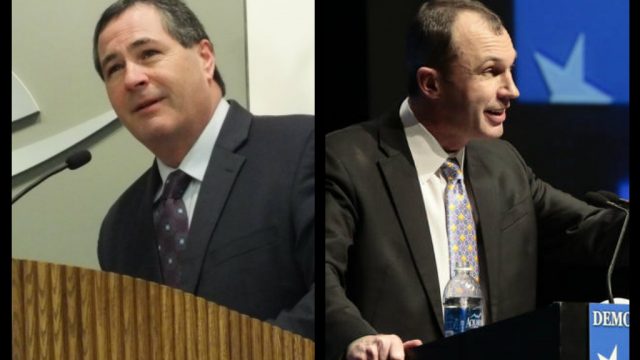The North Dakota Ag Commissioner Race Is Most Important Campaign In 2014

While attending the Republican convention I had a conversation with a state legislator who asked me an interesting question: Would you have thought, in December, that the most important and likely hotly contested race on the statewide ballot would be for the Commissioner of Agriculture?
The answer, of course, was no.
Just a few months ago the most credible candidate for the office Democrats could hope for – Ryan Taylor, a former state legislator and gubernatorial candidate in 2012 – told the media that he wouldn’t be running for any offices in 2014. He had accepted a two-year fellowship position with the Bush Foundation, a left-wing nonprofit, to study Norwegian socialism, and it didn’t seem likely that he’d give up that position (which came with a $80,000 grant) to run for office.
Republican incumbent Doug Goehring, on the other hand, seemed to have a clear path ahead of him. After winning re-election with nearly 70 percent of the vote in 2010, he seemed on cruise control for another four year term.
With Democrats putting up placeholder candidates in most of the races to challenge sitting Republicans, it seemed like the race with the most public appeal would be the US House race. Though even that one seemed likely to be a yawn fest, with Cramer polling well and facing only a challenge from Democrat George Sinner who spent months dithering instead of announcing his campaign before finally backing into he race.
Then the North Dakota Farm Bureau dropped a bomb, and suddenly the competition for North Dakota Ag Commissioner became perhaps one of the most important races in North Dakota, if not the region.
Citing policy problems with Goehring’s work on contentious animal cruelty legislation (among other issues), as well as inappropriate behavior with staff that Goehring admitted to (at one point he referred to a group of female subordinates as a his “harem”), the Farm Bureau backed a candidate of their own.
Judy Estenson, who was that candidate, ultimately lost the NDGOP endorsement at the party’s state convention this weekend and promised she wouldn’t be appearing on the June primary ballot. But the damage, some might say, was done. After the Farm Bureau and Estenson launched their challenge to Goehring, Taylor changed his mind and entered the race.
Now Goehring, a bit bloody after endorsement fight with Estenson, is facing a Democrat opponent who represents the best candidate Democrats could hope for in an election cycle where the liberals have few other competitive races to focus resources on.
Why does all this matter?
This race will be called the Agriculture Commissioner race, but it may as well be called the Oil Commissioner race. Among the duties of the office is a seat on the North Dakota Industrial Commission, which oversees regulation of oil and gas development.
The Governor and Attorney General, offices held by Republicans Jack Dalrymple and Wayne Stenehjem respectively, round out the other members of the commission.
North Dakota Democrats in general, and Taylor specifically, have been outspoken in their criticism of the handling of oil development in North Dakota.
Taylor often sounds like a turn of the century populist, a throwback to the days of North Dakota’s Non Partisan League (an artifact of which lingers in the full name of the North Dakota Democratic Non-Partisan League).
“You can’t unleash all that oil and then wonder why the train tracks are full of oil tankers and you can’t get grain on from the elevators in North Dakota and get that product to market,” Taylor said while announcing his campaign weeks ago, signaling his intent to make oil development a wedge issue with ag interests. “I will not be a rubber stamp for out-of-state oil barons. I’ll stand up for North Dakota.”
Goehring, for his part, has been protective of oil development and skeptical of putting new regulatory hurdles in its way. Most recently Goehring was a staunch opponent of proposed regulations that would have subjected oil development on private land near a list of “extraordinary places” in the state to public comment.
Needless to say, a switch from Goehring to Taylor on the NDIC would mean a major shift in the tone of regulations and decision-making on oil development. With oil development central to just about everything happening in North Dakota these days – in 2013 more than half of all revenues collected by the Tax Commissioner’s office were directly from oil/gas production and extraction taxes – that makes the race for the Commissioner of Agriculture an unlikely pick for the most important campaign in North Dakota this year.




